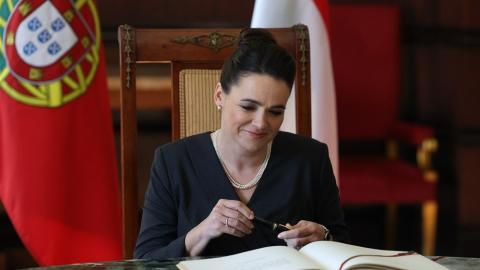Democracy Digest: Hungarian President Vetoes Controversial Anti-LGBT Law

President Novak, a former family affairs minister, is seen as a loyal ally of Prime Minister Viktor Orban, but also someone who cleverly navigates European diplomatic circles. She argued that the paragraph on "protecting the Hungarian way of life" does not belong to the EU Whistleblower Act (she called it a "foreign body" in the legal text) and claimed it weakens rather than strengthens constitutional rights, as it is not in line with a fundamental value also anchored in the constitution, freedom of speech. The law is also loosely worded, giving too much room for interpretation, she added. Using her veto means the law goes back to parliament, though MPs can still decide to adopt it as it is. Many wonder whether this is another shrewd political game by Orban, who might have got signals from the European Commission that he had gone too far with this law and now needs a 'face-saving deal' to get his hands on frozen EU funds. Yet there are others who think Novak is establishing herself as a less-radical alternative to Orban.
The government intends to decriminalise defamation and libel in the media - a step which people not familiar with Hungarian politics could mistake as a positive step to strengthen free speech. The governing Fidesz party submitted a draft law to parliament that would significantly lower punishment for defamation in the media, which currently allows for up to two years in prison. Fidesz parliamentary leader Mate Kocsis argued that defamation and slander should no longer fall under the Penal Code and when committed during the free exchange of public discourse only be punishable if it is coupled with an "obvious and seriously derogatory denial of the victim's human dignity". Kocsis also argued that criminal law should only be the last resort...
- Log in to post comments
